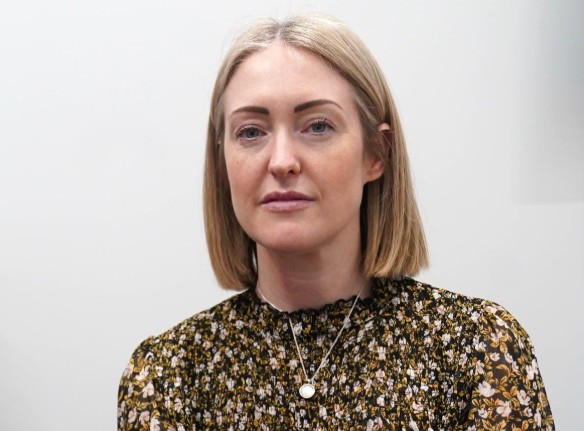Esther Ghey, mother of murdered teen Brianna Ghey, has launched a heartfelt campaign urging the UK government to ban mobile phones in classrooms, claiming unchecked phone use is putting pupils’ safety and mental health at risk.
After losing her 16-year-old daughter in a brutal stabbing in Warrington last year, Esther has channelled her grief into a nationwide call for action. Her plea isn’t just emotional, it’s informed by the harsh realities her daughter faced before her death.
“School should be a place of focus, connection and protection. Our children deserve an education free from digital distraction, and we have the tools to make it happen.”
Brianna Ghey, a teenager with thousands of fans on TikTok, was invited to Culcheth Linear Park and stabbed 28 times in a planned killing by two boys. Behind the tragic news stories, though, was a tormented girl profoundly impacted by her online existence.
Esther remembers how Brianna became more and more dependent on her smartphone, a habit which quickly escalated into viewing abusive material and developing worsening mental illness.
Brianna’s school records painted a worrying picture. There were 120 safeguarding alerts and 116 behavioural incidents logged before her death, many of which her mother attributes to her excessive phone use and the toxic online culture surrounding it.
“Most schools are relying on children to resist a temptation even adults struggle with. It’s not fair, and it’s not working,” Ms Ghey stated in her public letter.
Ms Ghey has now launched a formal petition, urging the new government under Sir Keir Starmer to impose a statutory ban on mobile phone use during school hours, with exceptions only for medical or accessibility needs.
She’s also calling for state-funded storage solutions in schools to enforce the ban fairly and safely across all regions, regardless of budget or postcode.
Her push follows findings by the Children’s Commissioner, which reveal:
- 79% of secondary schools still allow students to bring mobile phones.
- 1 in 5 pupils report daily disruptions caused by phone use in class.
Esther argues this creates a dangerous “postcode lottery,” where some schools enforce strict rules while others let phones run riot, leaving vulnerable pupils unprotected.
Brianna’s former school, Birchwood Community High School, has since adopted a stricter policy. Pupils now lock their phones in secure pouches during the school day, and the impact has been immediate.
Headteacher Emma Mills told The Mirror: “Around school, there is more chatter in the corridors at breaks and lunch, students are more focused in lessons, and the number attending House competitions and enrichment activities has risen.”
Students themselves, she said, have embraced the change, grateful for a “break” from the constant pings and pressures of social media.
“They say it has reduced their stress levels knowing they don’t have to think about what is happening. It has made them realise they can live without it.”
Brianna’s life was cut short in a terrible way, but her mother hopes her legacy can be that of true change.
By addressing phone addiction and protecting children from unhealthy content on the internet during school hours, Esther is trying to provide students what Brianna lacked: a safer, more concentrated learning environment.
Her message is this: digital distraction is a rising menace in classrooms, and the government needs to step in now before additional lives are harmed or destroyed.
If the petition goes viral, it would reorient mobile phone policies in the UK, ensuring each child, where they reside, is provided with a safe environment in which to learn, develop, and just be a child once more.






